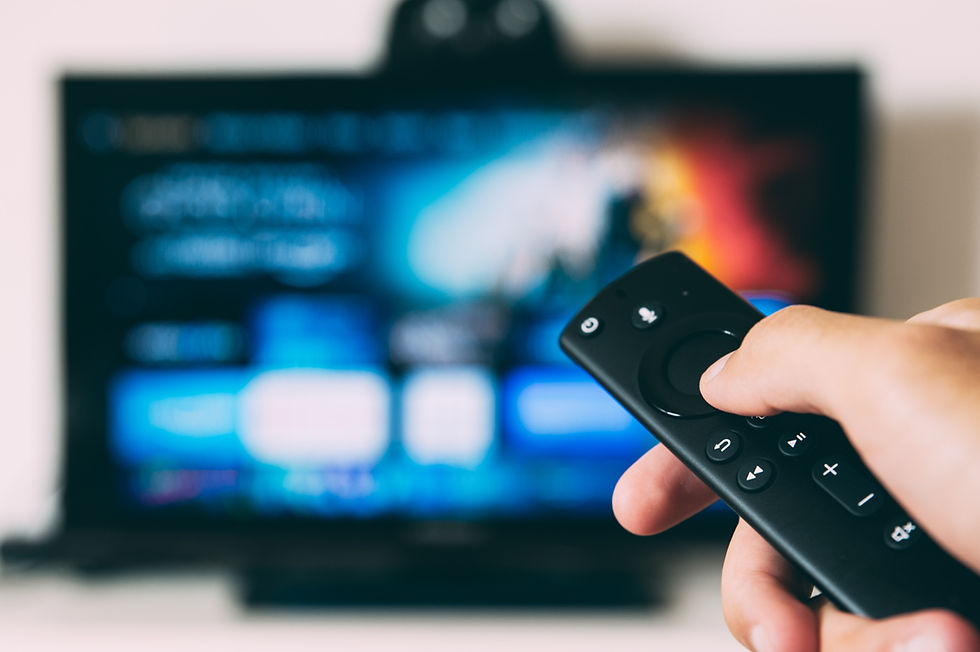Is Black Excellence a Romance Trope?
- c.rosedahl
- Jun 17, 2022
- 4 min read
Updated: Jul 25, 2022

Hmmm...
First and foremost, the term Black excellence implies that there is a "not-Black excellence." What is not-Black excellence? Is it Urban fiction? If so, that's not cool.
Once again Black culture and people are reduced to categories and labels that are non-existent for non-marginalized groups. There's no white-on-white crime.
Earlier today, I tuned into podcasters Danielle and Mollie of Black Chit Lit. Their May 31, 2021 episode featured personal book pet peeves and listeners' Twitter grievances. Some complaints were trivial, like organizing a bookshelf by color. One stood out, however. Mollie and Danielle argued for more books with mediocre Black people. Black people who are not good at math. LOL. This got me thinking. Is Black Excellence a romance trope?
I wrote my debut novel, "Love, Rebooted," because I saw too few books that featured characters like me and my friends, working college-educated Black and Brown women. "Love, Rebooted" centers on ordinary but flawed twenty-somethings; people who are not billionaires or wealthy Texas ranch owners and oil tycoons. While listening to the podcast an article I read in The Toast came to mind, "I Wrote The Accent: A Black Writer Considers 'Urban Romance'" by Brittany K. Allen.
Just like Allen, I find the term urban romance to be synonymous with "Street Lit." These books are set in the inner city. Protagonists struggle to make ends meet and may have to resort to crime to survive. There's imminent danger. Characters are drug kingpins and strippers; the police are corrupt and there's excessive violence. Allen rejects writing for the urban market. "I want to create thoughtful work about being Black, as I experience it. (...) I think it’s possible to write a commercial story that transcends tropes and the binding language of categories. I don’t want to write “Urban” — not because Urban doesn’t exist; not because people I love and feel connected to don’t occupy that world, those pages; but because that loaded term itself isn’t quite me, and I’ve decided it’s disingenuous of me to participate in the “idea” of my own culture."
Preach, girlfriend!
Tropes are what readers want and expect out of romance.
Only William Shakespeare can get away with killing the main characters.
Over time some tropes have become objectionable. Thank goodness bodice rippers are a thing of the past and stories featuring virgin waifs are on the decline. What is a bodice ripper? It's a historical romance novel that features a violent sexual act against the heroine, usually rape. Nowadays, women own their sexuality and have a healthy sexual appetite. The second season of Netflix's Bridgerton featured sex between the unwed protagonists. Kate, the female lead, doesn't need to be "taught" about sex. She doesn't "discover" her body for the first time, either, as Daphne did in season one.
Hallelujah!
To Danielle and Mollie's point, African Americans and people of the diaspora are not homogeneous. If there were more variety within the genre, tropes like Black excellence and Black girl magic, terms that describe African American men and women who have overcome obstacles and achieved success in their chosen fields- sports, academia, entrepreneurship, medicine, etc.- would be less problematic. Black Excellence and Black girl magic imply "otherness" and "better than-ness." Like Dubois' Talented Tenth, only a select few will go on to lead. Or in the case of category romance, only a select few Blacks will find love and happiness.
Booo!!
Black Chit Lit podcasters, Mollie and Danielle, are right. Category romance still lacks diversity. They go on to discuss a comment made in a previous episode; the listener argues Bayron's novel, "Cinderella is Dead," would have been better if the male love interest hadn't been Black. The implication is that interracial love sells better, and is more palatable to white readers.
Hold on... wait a minute. (and yes, I'm thinking this with my chest poked out and using a Meek Mill voice.)
In case this listener didn't know, Black women are the ones who buy and read the most. (Patrik H. Bass referenced the Pew Research Center in a 2020 Essence Magazine article, reporting that College-educated Black women read more (print and e-readers) than any other group. (Why Black Women Read More Books - Essence))
It seems like "Love, Rebooted" hit the bulls-eye, ya'll. Art imitates life, baby!
The last time I checked, Black women still love Black men. We don't have a problem reading about Black love. Heck, I know I'm not the only one who silently cheered when news broke about Michael B. Jordan and Lori Harvey's relationship. He's back on the market! I've even contemplated driving into the city for the next Creed III shoot in hopes of catching the actor's eye and I have no idea if filming is still going on. In my opinion, this listener represents a small percentage of romance readers. I'm not going to bother looking up statistics, either because I think there are enough readers out there to go around; readers who enjoy all sorts of pairings. No one union-- Black with Blacks, Blacks with Whites, Blacks and Asians, etc.-- guarantees an increase in sales.
Black excellence can be a romance trope and it doesn't have to be a negative one. While it's exclusive by nature, so are most tropes. There's an audience for it just like there's an audience for the alpha male, the au-pair abroad, the fish-out-of-water, the dominant boss, a marriage of convenience, a rags to riches story, a May-December romance, and the classic secret baby trope.
------



Comments